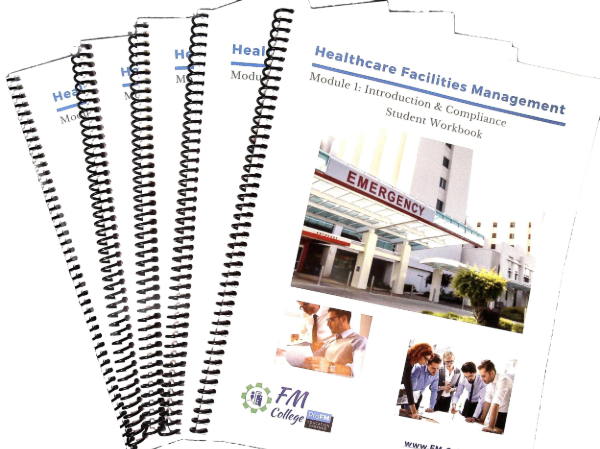Healthcare FM ~ Instructor-Led Live Virtual Course

Learning Format: Instructor-Led (Live Virtual via Zoom)
This course is delivered through scheduled live class meetings with real-time instruction, discussion, and Q&A. This instructor-led course is scheduled four times per year and follows a structured cohort format with set meeting times:
- Daytime (12-2 PM EDT/EST)
- Evening (7-9 PM EDT/EST)
Next course is April 7th – June 4th, 2026
Program Description
This course in Healthcare Facilities Management is designed to support construction, operation and maintenance of medical facilities in compliance with international standards. It is designed to prepare the individual for a high performing career in healthcare facilities leadership.
Strategic alignment between the goals of the healthcare/hospital organization utilizing the facilities, and the actions of the facilities organization supporting their operation is critical to success. The expertise for the development and operation of these facilities is the responsibility of the healthcare facilities manager. Without the right knowledge, skills and abilities this key leader cannot succeed. Yet succeed he or she must, if the larger healthcare organization is to succeed in its mission.
The knowledge and expertise needed is skill based, not simply knowledge based. The successful healthcare facilities manager must be able to apply expertise to complex real-world situations.
This exciting program combines text-based knowledge, with real-world situations to develop a blended learning workshop that accelerates the healthcare facilities manager’s development as a strategic partner to the leaders of the healthcare organization..
One Year Access! Course Offered Quarterly!
Re-attend as many times as you want during your access period!
Price range: $1,135.50 through $1,295.00
Prefer a more flexible option?
This course is also available in a self-study format:
• 24/7 on-demand access
• Learn at your own pace
• No scheduled class times
While FM College is not an accreditation organization, we do offer excellent training for those planning to sit for an examination to become a Certified Healthcare Facility Manager (CHFM).
We also provide a Certificate of Completion and continuing education units (CEUs) for all of our courses. Here is a link to a sample Certificate of Completion.
If your goal is to oversee infrastructure and facilities operations for a large hospital or medical center, you will want to pass the exam for Certified Healthcare Facility Manager (CHFM) designation.


